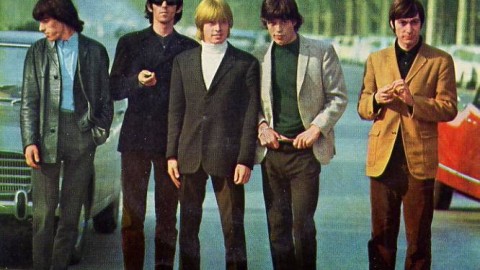 I was scanning the new releases on a recent trip to my local library when something caught my eye, a book titled Everything I Know About Business I Learned from the Grateful Dead. Despite living just outside of San Francisco and having read countless business and marketing books branded to stand out from the crowd, this seemed like a strange concept. There are many associations one makes when thinking about the Dead, but business savvy isn’t exactly one of them. Upon further examination it turns out I was wrong to judge a book by its (Tie-Dyed) cover.
I was scanning the new releases on a recent trip to my local library when something caught my eye, a book titled Everything I Know About Business I Learned from the Grateful Dead. Despite living just outside of San Francisco and having read countless business and marketing books branded to stand out from the crowd, this seemed like a strange concept. There are many associations one makes when thinking about the Dead, but business savvy isn’t exactly one of them. Upon further examination it turns out I was wrong to judge a book by its (Tie-Dyed) cover.
Rock bands don’t typically join the ranks of great entrepreneurs. However, a group of passionate people coming together to create something despite uncertainty about its success is as close to the definition as you can get. The Dead were no exception, not concerned with making money but rather wanting to play music. From keeping resources in-house to “strategic improvisation”, the book outlines a number of business lessons that can be learned from this seemingly unlikely source. Most importantly though, it made me think about PTs and collaboration.
Selena Horner, PT, active blogger and #SolvePT founder, recently wrote a guest post for Evidence in Motion’s blog asking if PTs collaborate well. Her answer? Not exactly. The general climate in the PT world is often competitive, where a close eye is kept on other PTs in one’s proximity and online disputes have been known to peak in forums. Being defensive in a competitive industry is understandable, particularly when patient flow is at stake, yet many examples show us that this insular attitude can be much more damaging than protective in the long run.
 Any business program’s organizational behavior course will spend a chunk of time on a psychological phenomenon called “Groupthink.” Groupthink happens when a group of people trying to reach a decision try to not rock the boat and reach a consensus instead of making critical evaluations and looking at alternative consequences. The most referenced case of Groupthink is the Bay of Pigs Invasion, however examples can be seen in the corporate world, sports and many court rooms (imagine if Henry Fonda in 12 Angry Men decided to pack it in and go grab a beer).
Any business program’s organizational behavior course will spend a chunk of time on a psychological phenomenon called “Groupthink.” Groupthink happens when a group of people trying to reach a decision try to not rock the boat and reach a consensus instead of making critical evaluations and looking at alternative consequences. The most referenced case of Groupthink is the Bay of Pigs Invasion, however examples can be seen in the corporate world, sports and many court rooms (imagine if Henry Fonda in 12 Angry Men decided to pack it in and go grab a beer).
Given the corrosive nature of Groupthink, many organizations have put procedures in place to prevent it. Among it’s many innovative business practices, including paid time off for employees to work on their own projects, 3M stresses cross-functional teams (no, Google didn’t pioneer these concepts). This cross departmental collaboration has been accredited to many of the company’s most important inventions. Masking tape, for example, was invented by a 3M sandpaper salesman who spent countless hours in auto body shops watching workers use the only solution at the time to mask chrome and metal car parts when painting; industrial strength adhesive and butcher paper. The strong adhesive always peeled off fresh paint and had to be retouched. Determined to find a better solution, he used his access to 3Ms labs and chatted with engineers. Alas, the lightly sticky tape was born.
In India, many people suffer partial to full blindness because they can’t afford simple cataract surgery. Wanting to help, Dr. Govindappa Venkataswamy (“Dr. V”) used all of his savings for retirement and opened a hospital that exclusively offered low cost cataract surgeries, but was still limited by the high cost of synthetic lenses. Enter David Green, a public health worker who began working at Dr. V’s hospital. Green knew there had to be a better answer. Looking to the efficiency of fast food chains, the two opened their own lens factory and were able to drop the cost of lenses from $150 a pair to just $10, greatly increasing the number of surgeries the hospital was able to perform.
Long story short, PTs can certainly benefit from looking outside of their own environment, whether it be to a PT clinic across town, a Doctor of Naturopathic Medicine, an orthopaedic surgeon or a psychedelic rock band. The answer to some of the hardest questions are in the most unlikely places, but they can never be found if we don’t step outside of the box and experience new things and work with new people.







